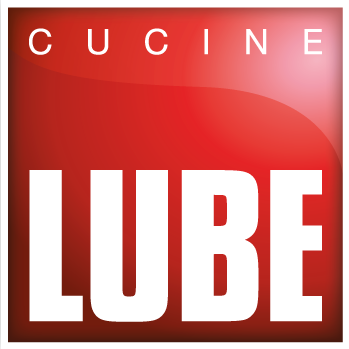Laminam stoneware
Laminam Stoneware doors are built with a powder-coated aluminium frame with a honeycomb matte finish in the back with an ash grey HPL panel and a front in Laminam Stoneware that is 3 mm thick. Porcelain stoneware is a particular type of ceramic that contains kaolin (the main ingredient of porcelain) and has a very compact and homogeneous structure with a high surface impermeability. Non-porous, does not absorb or emit substances. Stain and scratch resistant, easy to clean.
Where to find them
- Doors
- Built-in sinkss
- Back panelss
- Worktops
Technical data
Porcelain stoneware is a particular type of ceramic that contains kaolin (the main ingredient of porcelain) and has a very compact and homogeneous structure with a high surface impermeability (Franco Bulian, deputy director Catas - Ambiente Cucina). Sheets of Laminam Stoneware are made with an innovative technology employing a wet grinding of natural products like quarry clays, granite rocks and ceramic pigments and subsequent hybrid firing in an electric kiln at temperatures above 1,220°C, specifically designed to guarantee product uniformity. With a squared edge (rectified monocaliber), Laminam Stoneware is the largest and thinnest ceramic surface ever seen, the only flexible and truly flat product that concentrates 3 square metres of surface in just 3 mm of thickness, offering unprecedented manageability and ease of use. Subsequent cutting or trimming guarantees dimensional accuracy.
With the exception of the 12 mm worktop, which is produced using the slab in its full thickness, the countertops are composed of a slab of 5.6 mm of Laminam Stoneware (plus back mesh) bonded with a polymer-coated material support up to the required height, depending on the various cases running from a minimum of 40 mm up to a maximum of 170 mm, and a frontal or perimeter panel of the same height. In contrast, Laminam Stoneware doors are built with a powder-coated aluminium frame with a matte finish in the back with an ash grey HDF panel and a front in Laminam Stoneware that is 3 mm thick.
The main characteristics of porcelain stoneware are:
- Resistance to stains, organic and inorganic solvents, disinfectants and detergents. It can be easily cleaned without altering the surface characteristics. Hydrofluoric acid is the only substance capable of damaging the product.
- Non-porous, does not absorb and does not release substances, does not allow the onset of moulds, bacteria and fungi, therefore for this reason being particularly hygienic.
- Resistant to scratches and deep abrasions. Its properties therefore remain unaltered even after intensive use and frequent cleaning.
- It is the first anti-graffiti ceramic surface: it does not scratch even in the case of direct contact with metal tools and is resistant even to the most stubborn paints.
- A high tensile strength.
- Does not contain organic materials, therefore it is resistant to fire and high temperatures.
- It is totally compatible with food as it does not release any contaminating elements.
- Resistant to UV rays. The colours do not undergo any change, even when subjected to changes in climatic conditions.
- Fully eco-friendly and recyclable. It does not release any substances into the environment and can be easily ground up and entirely recycled in other production processes.
Laminam Stoneware is a product that uses a sustainable and environmentally friendly technology, as it is designed to limit both waste and the use of resources. Moreover, the use of hybrid kilns that combine the use of gas and electricity allows a consistent reduction of CO2 emissions.
Maintenance
Laminam Stoneware is the first surface that combines reduced thickness and large dimensions, high resistance to mechanical stress, chemical attack, scratches, deep abrasion and bending. Its properties therefore remain unaltered even after intensive use and frequent cleaning. Attention however when using sharp blades. While they will not compromise the material from a "structural" point of view, they can produce microgrooves where dirt can build up (Franco Bulian, deputy director Catas - Ambiente Cucina). For this reason, with stoneware tops it is advisable to always use cutting boards and not to work directly on the counters. The advanced technology used to produce the sheets allows the surfaces to be easily sanitised. Thanks to an average water absorption of 0.1% grams Laminam Stoneware is resistant to frost and adapts to all climatic conditions. Furthermore, since it does not contain organic matter it is highly resistant to fire and high temperatures (in case of a fire it does not emit smoke or toxic substances). Nonetheless, it is best not to place pots removed from the hob or hot and heated materials directly on the surface to avoid thermal shock (therefore always use trivets). Laminam Stoneware is easily cleaned: use a soft cloth, warm water and mild detergents as needed for daily cleaning. Although resistant to organic and inorganic solvents and disinfectants, it is advisable to remove ordinary stains with a damp cloth and common detergents (kitchen cleaner, Marseille soap, etc.), rinsing and drying carefully. To avoid the formation of opaque patinas do not use products containing waxes. Warning: do not abuse the resistance of ceramic materials. Avoid excessive loads (for example, do not stand on the countertop) and spillage of liquids that could penetrate inside the furniture and damage materials that are not resistant to these types of substances.

 Google Chrome
Google Chrome  Mozilla Firefox
Mozilla Firefox  Microsoft Edg
Microsoft Edg  Safari
Safari